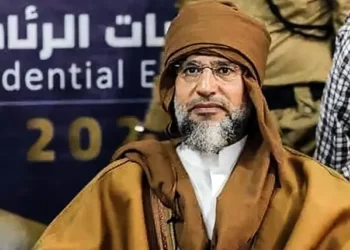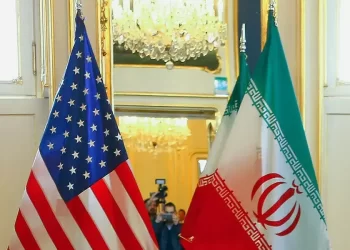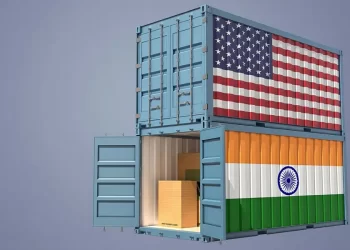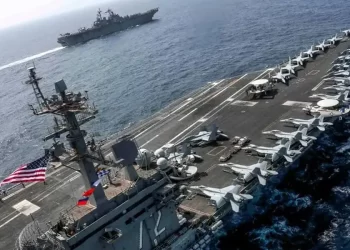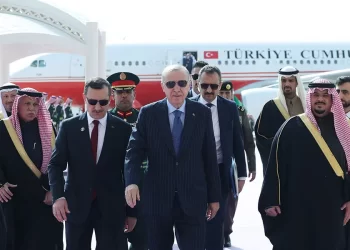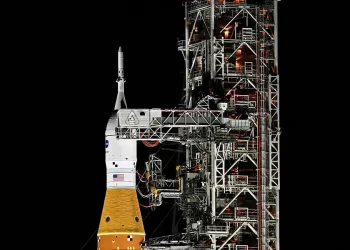WASHINGTON (news agencies) — It was December 2022 and the U.S. government’s chief hostage negotiator had just delivered Brittney Griner back to America after her 10-month imprisonment in Russia. Roger Carstens went to his hotel room anticipating a quick snooze after several sleepless days and had just put his head on the pillow when the phone rang.
On the other end was Paul Whelan from Russia, asking why the trade that brought home Griner had left him behind.
The call was a reminder that a deal heralded for bringing home a celebrated athlete had left neither side fully satisfied. The U.S. still needed to bring back Whelan, who was serving a lengthy prison sentence on espionage charges that Washington considered bogus. And Russia had its eyes set on someone too: an assassin jailed in Germany named Vadim Krasikov.
So, further negotiations were needed, culminating Thursday in a 24-person blockbuster swap.
That the latest exchange included both Whelan and Krasikov was no small thing.
It required the U.S. to regroup after the unexpected death in February of Russian opposition leader Alexei Navalny, who’d been seen as a cog in a potential exchange. It depended on the willingness of Germany to release a Russian who just five years earlier had committed a cold-blooded killing on its soil, and for other European countries to give up prisoners. And it forced Russia to part with Americans, including Wall Street Journal reporter Evan Gershkovich, it had stockpiled as trade bait.
And just like every other deal before it, it required the U.S. and its allies to reluctantly accept that the price of freeing people they regarded as clearly innocent was to release prisoners determined to be clearly guilty.
U.S. officials had known for some time that Krasikov would be essential to any deal for Whelan — and later Gershkovich.
Russia raised him relentlessly. President Vladimir Putin called him a “patriot,” perhaps sensing an opportunity to signal how far Russia would go to bring home anyone who might get caught. When Krasikov was sentenced in 2021, German judges determined that his killing two years earlier of a Georgian citizen who’d fought Russian troops in Chechnya was no random hit but rather ordered by the Russian secret services, which had given him a false identity, passport and the resources to carry out the murder.
“Over the course of this negotiation, we did reach the conclusion that Krasikov was a key,” White House national security adviser Jake Sullivan said.
The U.S. had shown a willingness to release from its own prisons significant criminals, including a Taliban drug lord and notorious arms trafficker Viktor Bout, as part of prisoner swaps. But Krasikov was held by Germany, which balked at the idea.
The issue was pressed repeatedly in furtive conversations that Sullivan, Secretary of State Antony Blinken and others had with various European foreign ministers, who were asked who they had in custody that the Russians might want.
The ground changed with the emergence of an unlikely candidate for Russia to trade.
Navalny, Russia’s best-known opposition politician, was serving a 19-year sentence on extremism charges that he rejected as politically motivated. He had close ties with Germany and had been treated there while recovering from a Russian poisoning attempt. The parties pressed forward on a deal involving Navalny and Krasikov that would unlock Gershkovich and Whelan and satisfy a core and unshakeable Russian demand.
But Navalny died unexpectedly in the Arctic penal colony where he was imprisoned, leaving U.S. officials feeling like “the wind had been taken out of our sails,” said a senior administration official, who briefed reporters on condition of anonymity. Even Putin after Navalny’s death said he had supported the idea of a swap.
On the day of Navalny’s death, Sullivan was coincidentally scheduled to meet with Gershkovich’s family about the outlines of the emerging deal. After the Russian opposition leader was found dead, officials were forced back to the drawing board to develop an arrangement acceptable to all parties.
The White House developed lists of political prisoners in Russia who might be of interest to Germany. During the course of negotiations, it also proposed to Germany exchanges that didn’t include Krasikov.
By this past spring, Sullivan and the U.S. team thought they had a workable plan. What they needed was approval from Germany. Sullivan drafted a letter for President Joe Biden to send to Chancellor Olaf Scholz with the outlines of the proposal.
Scholz told Biden words to the effect of, “For you, I will do this,” according to Sullivan and the senior administration official. Biden turned to Sullivan and said, “Get it done.”
Added into the mix during negotiations was Alsu Kurmasheva, a Russian-American journalist who was arrested on dubious allegations in October 2023 and ultimately included in the deal, along with Vladimir Kara-Murza, a Kremlin critic and Pulitzer Prize-winning writer serving 25 years on charges of treason widely seen as politically motivated,



